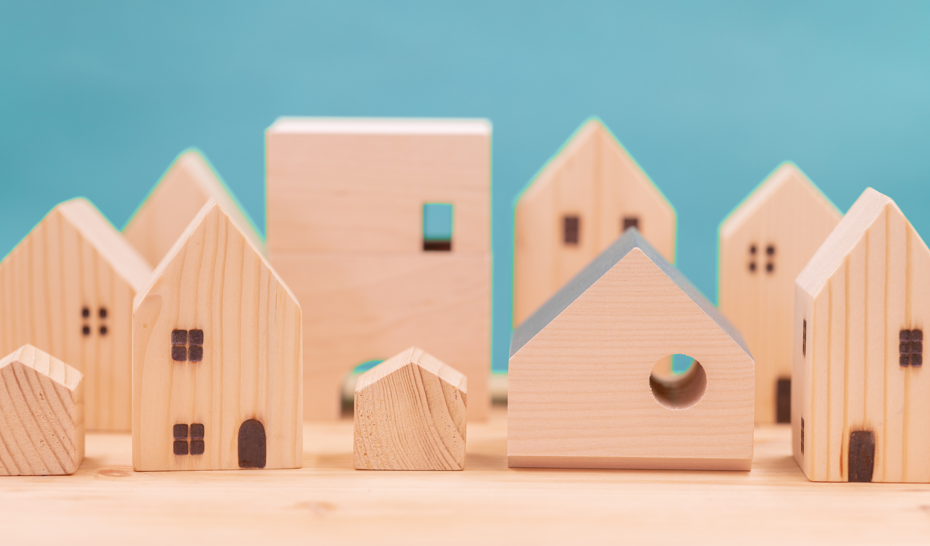What is a Maisonette? Your Guide to This Unique Home Style

Curious about the term "maisonette"? It's not just a fancy word; it has different meanings depending on where you are. Originating from the French word for "little house," a maisonette can refer to various types of dwellings across Europe. For example, holiday cottages can be called maisonettes in some places.
But here in the UK, a maisonette is typically a two-floor, self-contained apartment within a larger building, complete with its own staircase and entrance. You'll often spot these in converted period houses or above shops in town centres.
In Scotland, things are a bit different. A maisonette there is often part of a block of duplex flats, stacked on top of each other, with a shared entrance.
Maisonettes vs. Flats: What’s the Difference?
If you're picturing a flat, think again. A flat is usually all on one level within a block, sharing a common entrance and sometimes communal spaces. In contrast, a maisonette has its own front door that opens directly to the outside, giving it more of a house-like feel.
Plus, maisonettes have their living areas spread over two floors, unlike flats which are all on one level. This gives maisonettes a more spacious and unique layout. And while flats often lack outdoor space or only offer shared areas, maisonettes might come with their own little garden, sometimes even privately accessible.
Maisonettes vs. Houses: How Do They Compare?
Maisonettes share some features with houses, like having a private entrance and possibly even a garden or garage. However, they’re usually smaller. While a house can have up to four or five bedrooms and even an attic, maisonettes typically offer up to two bedrooms and less overall space.
On the bright side, maisonettes are generally more affordable than houses, making them a great option if you’re looking for a budget-friendly home.
Register today! Be amongst the first to see new listings and off-market homes for sale in your area
Are Maisonettes Leasehold or Freehold?
When you find a maisonette that catches your eye, it’s important to ask about its ownership type. Is it leasehold or freehold?
If it's leasehold, you’ll be paying ground rent to a freeholder. This fee varies, so be sure to check how much it is. Since maisonettes don’t have communal areas, there usually isn’t a service charge, except maybe for shared outdoor spaces like a garden or driveway.
On the other hand, if you buy a freehold maisonette, you could end up owning the entire building. This is common when a period property is split into two maisonettes. In such cases, the ground floor resident might pay you rent if you own the upper maisonette.
Owning a maisonette also comes with shared responsibilities. For instance, if you live on the first floor, you’re responsible for the roof and guttering. If you’re on the ground floor, the foundations are your responsibility. Both parties usually share the upkeep of any communal areas.
Pros and Cons of Buying a Maisonette
Pros:
- Great for First-Time Buyers: Maisonettes are often cheaper than houses and offer more space than typical flats.
- Unique Living Spaces: Unlike standard flats, maisonettes come in various layouts and sizes, often offering a more bespoke living experience, especially in converted period buildings.
- Bonus Storage: Many maisonettes come with added storage like a garage, giving you room for those extra things you might not fit into a flat.
Cons:
- Limited Expansion Options: Unlike houses, maisonettes don’t benefit from Permitted Development Rights. This means you’ll need planning permission for significant home projects, and approval isn’t always guaranteed.
- Space Constraints: Maisonettes might not be suitable for growing families since they offer less space compared to houses.
- Shared Responsibilities: Any exterior work requires coordination with the other occupants. This can sometimes be a hassle if you need to agree on and manage shared repairs.
- Noise and Smells: Living above shops or businesses can bring challenges like noise or smells, especially if it's a restaurant or café below. It’s a good idea to visit at different times to gauge the environment.
Is a Maisonette Right for You?
Deciding whether a maisonette is the right fit depends on your needs and preferences. For many first-time buyers, a maisonette offers a balance of affordability and space. However, if you’re planning to expand or need more room, a traditional house or bungalow might be a better option.
Ready to Make you’re Move?
If you're considering a maisonette or any other type of home, Chewton Rose is here to help. Our team is dedicated to finding the perfect home for you. Reach out to your local Chewton Rose branch today.



